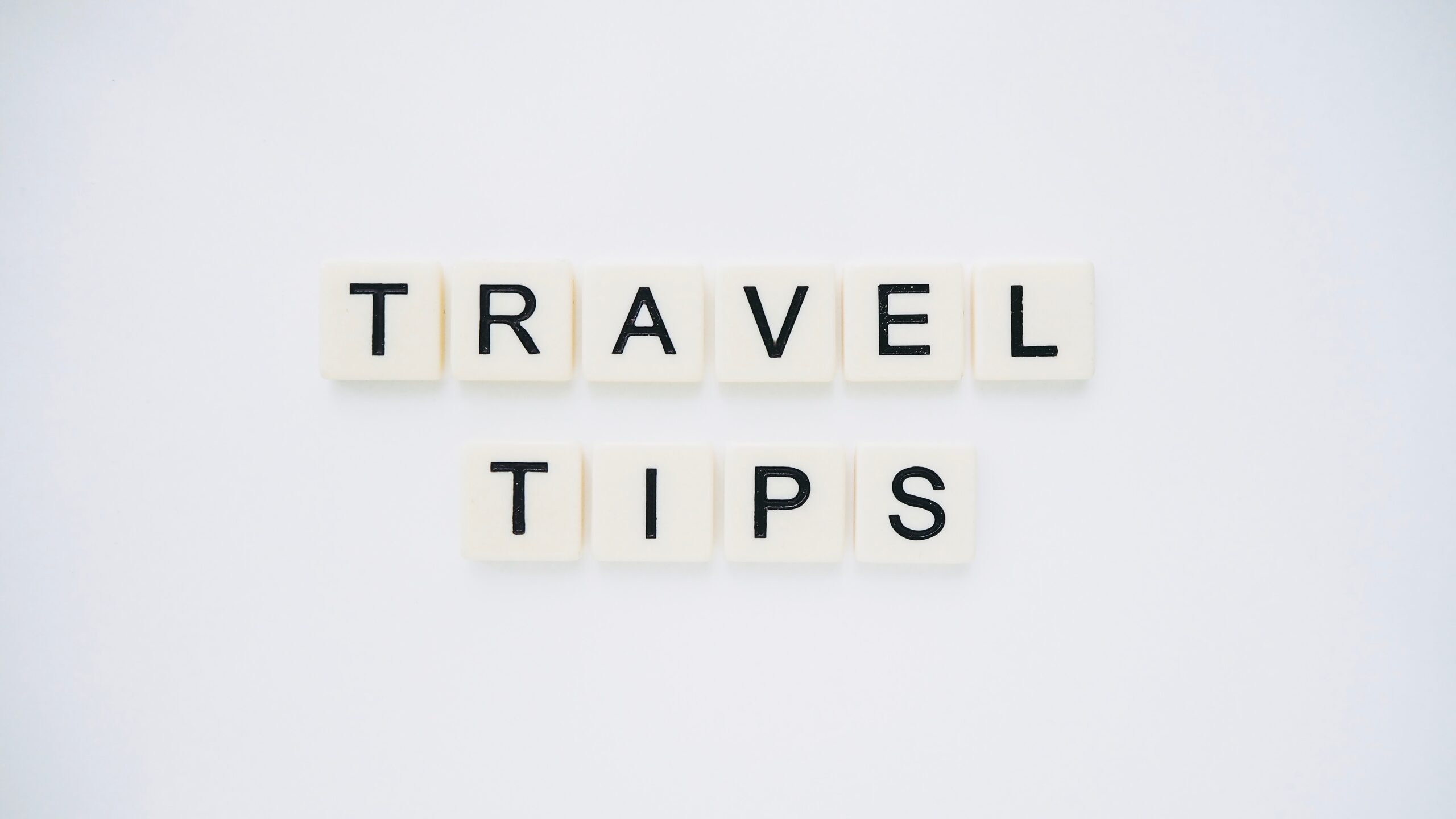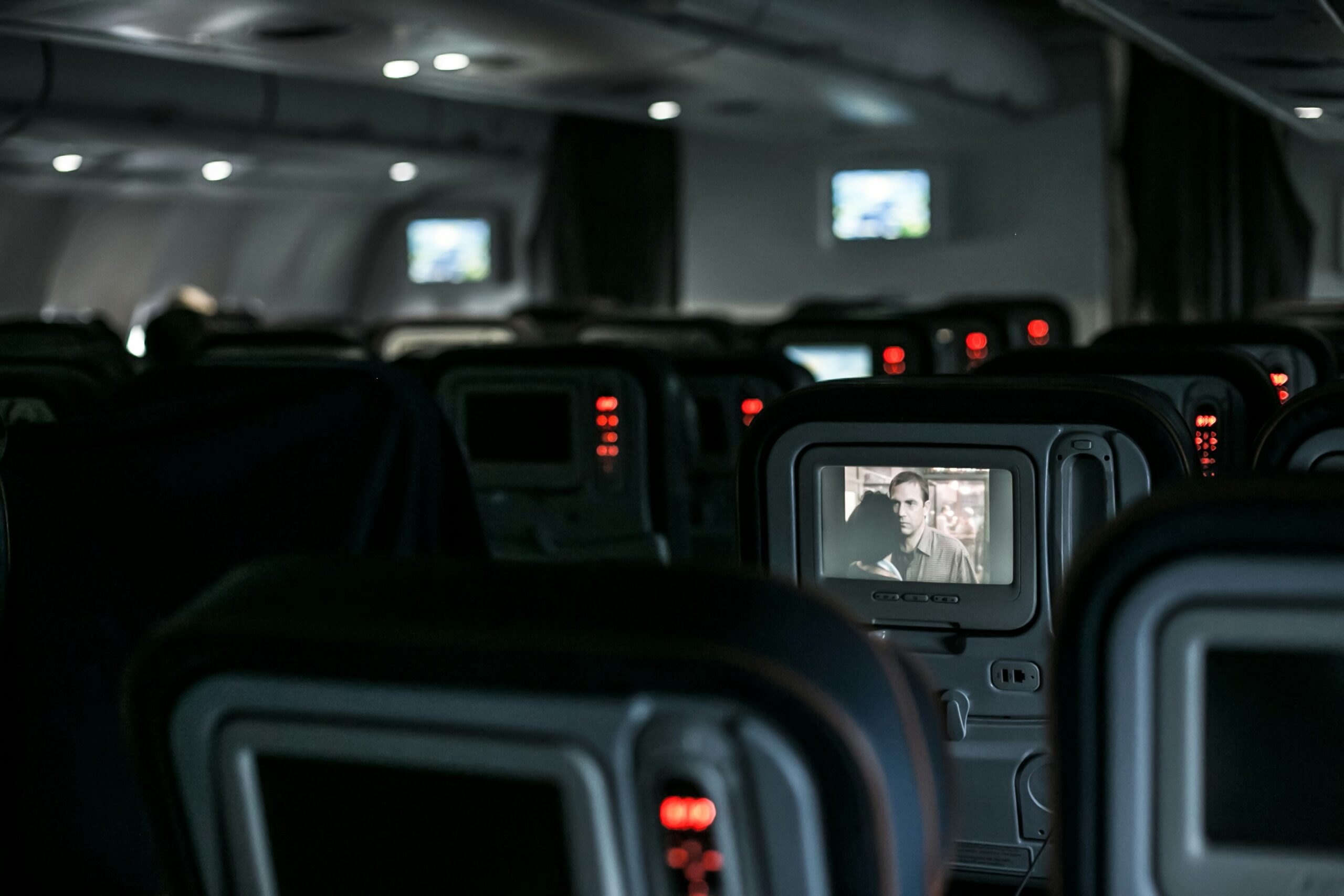Introduction: Why You Need a Travel Checklist
Must-Have Travel Essentials for Planning a trip can be an exciting yet daunting task. Every traveler, whether seasoned or novice, understands the importance of preparation. A comprehensive travel checklist is an essential tool that can significantly reduce stress, ensure nothing is forgotten, and ultimately make your journey more enjoyable. From packing essential items to preparing necessary documents, a well-thought-out checklist serves as your roadmap to a seamless travel experience.
One of the primary benefits of having a travel checklist is the peace of mind it offers. Knowing that you have everything you need allows you to focus on enjoying your trip rather than worrying about what you might have left behind. A travel checklist helps you organize your thoughts, prioritize your needs, and systematically tick off items as you pack and prepare. This level of organization can prevent last-minute panic and the inconvenience of missing crucial items, such as medications, identification documents, or travel tickets.
In the following sections of this blog post, we will provide a detailed guide to creating your ultimate travel checklist. We will cover various aspects, including essential documents, packing necessities, health and safety items, and tips for personal comfort. Each section will break down the specifics, offering practical advice and insights to ensure that you are fully prepared for your next adventure. By the end of this blog post, you will have a comprehensive understanding of how to create a thorough and effective travel checklist, tailored to your unique needs and preferences.
Stay tuned as we delve into the specifics of travel preparation, ensuring that your next trip is well-organized, stress-free, and thoroughly enjoyable. With the right checklist in hand, you can embark on your journey with confidence, knowing that every detail has been meticulously planned and accounted for.
Effective pre-trip planning is crucial for ensuring a smooth and enjoyable travel experience. At the outset, researching your destination is vital. This involves understanding the culture, language, local customs, and weather patterns of the place you will visit. Utilize resources such as travel guides, official tourism websites, and travel forums to gather comprehensive information. Additionally, familiarizing yourself with local events or festivals can enhance your travel experience.

Click here to buy your best travel essentials using this affiliate link
Must-Have Travel Essentials for Planning the Itinerary
Creating a detailed itinerary is another essential step. Start by listing the top attractions you wish to visit and activities you want to partake in. Allocate ample time for each activity, factoring in transit times and potential delays. Online tools and travel apps can assist in organizing your day-to-day activities efficiently. Consider booking tickets for popular attractions in advance to avoid long queues and ensure availability.
Must-Have Travel Essentials for Booking Accommodations and Transportation
Securing accommodations and transportation well in advance is paramount. Compare prices and read reviews on platforms like Tripadvisor, Booking.com, or Airbnb to find suitable lodging options. For transportation, decide whether you will need to book flights, trains, or rental cars. Websites like Skyscanner, Expedia, and local transit authorities can provide valuable insights and competitive rates. Ensure that your bookings are confirmed and keep copies of all reservations handy.
Must-Have Travel Essentials by Obtaining Necessary Travel Documents
Having the correct travel documents is non-negotiable. Verify the validity of your passport and determine if a visa is required for your destination. Visa requirements vary by country, and the application process can take several weeks, so plan accordingly. Websites like iVisa and government portals can provide detailed information on entry requirements and help streamline the application process. Additionally, make copies of your passport, visa, and other essential documents, and store them separately from the originals.
Must-Have Travel Essentials by Purchasing Travel Insurance
Travel insurance is a critical component of pre-trip planning. It provides coverage for unexpected events such as medical emergencies, trip cancellations, or lost luggage. Compare different travel insurance policies to find one that best suits your needs. Reputable providers include Allianz, World Nomads, and AXA. Ensure that the policy covers all the activities you plan to engage in and understand the claims process thoroughly.
By meticulously addressing these key areas in your pre-trip planning, you can significantly enhance your travel experience and minimize potential disruptions.
Must-Have Travel Essentials for Packing
When preparing for your next trip, having a comprehensive checklist of packing essentials can make all the difference. Start with clothing; consider the climate and activities planned. For a beach vacation, pack swimwear, light clothing, and a hat, while a hiking trip may require sturdy boots, thermal wear, and a rain jacket. It’s advisable to use packing cubes to keep items organized and to roll clothes to save space.
Toiletries are another crucial component. Beyond the basics like toothbrush, toothpaste, and deodorant, consider travel-sized bottles for shampoo and conditioner. A compact first-aid kit is invaluable, containing bandages, antiseptic wipes, and any personal medications. Don’t forget sunscreen and insect repellent if your destination calls for it.
In today’s digital age, electronics are indispensable travel companions. A smartphone is essential, but also consider packing a portable charger, headphones, and universal power adapter. If you plan to work or capture memories, include a laptop and camera, respectively. Always carry the necessary chargers and cables to avoid inconvenience.
Travel accessories can enhance your comfort and convenience. An ergonomic travel pillow, eye mask, and earplugs can make long flights or train rides more bearable. A reusable water bottle helps you stay hydrated, while a sturdy carry-on bag ensures your essentials are always within reach. It’s wise to pack a change of clothes and essential documents in your carry-on, in case of lost luggage.
Efficient packing is an art. Utilize every inch of space wisely and keep in mind the specific needs tied to your destination. Whether you’re headed to the tropics or the mountains, this checklist ensures you are well-prepared, allowing you to focus on enjoying your trip.
Click here to buy your best travel essentials using this affiliate link
Health and Safety Precautions
Must-have travel essentials by ensuring your health and safety during a trip is paramount to having an enjoyable and stress-free experience. Before embarking on your journey, it is crucial to address several health-related aspects. First and foremost, check if any vaccinations are required or recommended for your destination. This information can usually be found on government health websites or through your healthcare provider. Vaccinations can protect you from diseases that may be prevalent in certain regions, ensuring you stay healthy throughout your travels.
In addition to vaccinations, consider packing a travel health kit. This kit should include essential medications such as pain relievers, anti-diarrheal tablets, and any prescription medications you take regularly. It’s also wise to include items such as band-aids, antiseptic wipes, and insect repellent. Having these supplies on hand can help you manage minor health issues and avoid unnecessary trips to local pharmacies, which might not carry the products you are accustomed to.
Staying safe in different environments requires vigilance and preparation. When it comes to securing personal belongings, always use a money belt or a secure bag to keep your valuables close. Be cautious in crowded areas, as these are prime spots for pickpockets. Familiarize yourself with local customs and laws to avoid inadvertently offending residents or getting into legal trouble. Respectful behavior can go a long way in ensuring your safety and making your trip more enjoyable.
Knowing what to do in case of emergencies is another critical aspect of travel safety. Keep a list of emergency contacts, including local emergency services, your country’s embassy or consulate, and any relevant insurance contacts. It’s also beneficial to have a basic understanding of the local language to communicate effectively in urgent situations.
In light of the ongoing COVID-19 pandemic, additional precautions are necessary. Stay updated on the latest travel advisories and entry requirements for your destination, which may include proof of vaccination or negative test results. Carry extra masks, hand sanitizers, and disinfectant wipes, and adhere to local health guidelines to protect yourself and others.
By taking these health and safety precautions, you can focus on enjoying your journey with peace of mind, knowing you are well-prepared for any situation that may arise.
Must-Have Travel Essentials for Technology and Connectivity
In today’s digital age, staying connected during your trip is crucial for both convenience and safety. Bringing essential tech items can significantly enhance your travel experience. A smartphone is indispensable, serving as your primary tool for communication, navigation, and information. Ensure you pack chargers and power banks to keep your devices powered throughout the day. Additionally, a travel adapter is essential for international trips to ensure compatibility with different types of power outlets.
Accessing the internet abroad can be challenging, but there are several options to stay connected. Purchasing a local SIM card upon arrival is often the most cost-effective solution, providing you with local rates for calls and data. Alternatively, international roaming plans from your home carrier may offer convenience without the need to change numbers. Portable Wi-Fi hotspots are another practical option, offering reliable internet access for multiple devices.
Managing data usage is vital to avoid excessive charges. Many smartphones allow you to monitor data consumption and set limits. Downloading offline maps and guides before your trip can reduce the need for constant internet access. Travel apps are invaluable tools; navigation apps like Google Maps, translation apps such as Google Translate, and local recommendation apps can greatly enhance your travel experience by providing real-time assistance and information.
While using public Wi-Fi networks, it’s important to take security measures to protect your personal information. Avoid accessing sensitive accounts and use a Virtual Private Network (VPN) to encrypt your data. Regularly updating your software and using strong, unique passwords can also contribute to safeguarding your information.
By thoughtfully integrating technology into your travel plans, you can ensure seamless connectivity and a more enjoyable and efficient trip. Whether it’s staying in touch with loved ones, finding your way around a new city, or discovering local gems, the right tech tools and practices can make all the difference.
Money Management as Must-Have Travel Essentials
Effective money management is paramount when preparing for any trip. Setting a budget is the first step; it helps in ensuring that you do not overspend and have enough funds to cover all essential expenses. Begin by estimating costs for accommodations, transportation, food, and activities. It is prudent to allocate some extra funds for unexpected expenses or emergencies.
Handling foreign currency is another crucial aspect of travel. Before departing, research the local currency of your destination and current exchange rates. It is often beneficial to exchange a small amount of cash beforehand for immediate expenses upon arrival. For larger sums, using local ATMs can provide competitive exchange rates, though it is important to be aware of potential withdrawal fees.
Using credit and debit cards can be convenient, but it also requires some advance preparation. Inform your bank or card issuer about your travel plans to prevent any unexpected blocks on your cards due to suspicious activity. Additionally, inquire about any foreign transaction fees that might apply. Some banks offer credit and debit cards with no foreign transaction fees, which can save you money in the long run.
Finding the best exchange rates can save you a significant amount of money. Avoid exchanging currency at airports or tourist areas where rates are typically less favorable. Instead, look for local banks or reputable currency exchange services. Online tools and mobile apps that track exchange rates can also be helpful in determining the best times to exchange money.
Keeping an emergency fund is a vital part of money management while traveling. This can be in the form of a small amount of reserve cash or a separate bank account that you can access if needed. It is also wise to carry a backup credit or debit card in case your primary card is lost or stolen.
To avoid common financial pitfalls and scams, always be vigilant. Be cautious when using ATMs, and avoid those in isolated or poorly lit areas. Beware of unsolicited offers or deals that seem too good to be true, as they often are. Protect your financial information by using secure Wi-Fi connections and avoiding public computers for banking transactions.
Sustainable Travel Tips
Sustainable travel practices are essential for minimizing environmental impact and preserving the natural and cultural heritage of destinations. One of the primary ways to travel responsibly is by choosing eco-friendly accommodations. Look for hotels and lodges that have earned certifications from recognized organizations, such as Green Key or EarthCheck. These establishments often implement energy-saving measures, waste reduction programs, and water conservation practices, ensuring a lower carbon footprint.
Reducing plastic use is another critical component of sustainable travel. Carry a reusable water bottle, shopping bag, and utensils to avoid single-use plastics. Many destinations now have refill stations or offer alternatives to plastic packaging. Supporting local businesses is also crucial; it helps to sustain the local economy and reduces the environmental impact associated with the transportation of goods. Opt for locally-owned restaurants, shops, and tour operators to ensure your spending benefits the local community.
Respecting local cultures and wildlife is fundamental to responsible travel. Learn about the customs, traditions, and social norms of your destination to avoid unintentional disrespect. Engage in wildlife tourism responsibly by choosing reputable operators who prioritize animal welfare and habitat conservation. Avoid activities that exploit animals, such as elephant rides or dolphin shows, and instead, opt for experiences that support conservation efforts.
For those seeking resources on sustainable travel options, several organizations provide valuable information and tools. Websites like Sustainable Travel International and Responsible Travel offer guides and tips for eco-friendly travel. Additionally, platforms such as Ecotourism.org provide directories of certified eco-friendly accommodations and tour operators.
By incorporating these sustainable travel tips into your next trip, you can help to protect the environment, support local communities, and ensure that the destinations you love remain vibrant and thriving for future generations. Sustainable travel is not just a trend; it is a necessary practice for the preservation of our planet and its diverse cultures.
FAQs and Final Checklist
When preparing for a trip, numerous questions may arise. Below are some frequently asked questions along with detailed answers to help make your travel experience smoother:
Q: What essential documents should I carry?
A: Always bring your passport, visa (if applicable), travel insurance, and copies of your itinerary. Having a list of emergency contacts and medical information is also wise.
Q: How can I ensure my luggage stays within weight limits?
A: Use a portable luggage scale to weigh your bags before heading to the airport. Pack versatile clothing and prioritize essential items to avoid overpacking.
Q: What are some tips for staying healthy while traveling?
A: Stay hydrated, carry snacks, and wash your hands frequently. Consider bringing a travel-sized first aid kit and any necessary medications.
Q: How can I keep my valuables safe?
A: Use a money belt or neck pouch to keep your important items close. Secure your luggage with locks and always be aware of your surroundings.
Q: What should I do if I lose my passport?
A: Contact the nearest embassy or consulate immediately. Having photocopies of your passport can expedite the replacement process.
Must-Have Travel Essentials for Final Checklist
Here is a comprehensive checklist to ensure you have everything covered:
- Documents: Passport, visa, travel insurance, itinerary copies, emergency contacts, medical information.
- Health: Medications, first aid kit, hand sanitizer, reusable water bottle, snacks.
- Clothing: Weather-appropriate outfits, comfortable shoes, versatile pieces.
- Electronics: Phone, charger, adapter, portable charger, headphones.
- Money: Wallet, credit/debit cards, local currency, money belt.
- Miscellaneous: Luggage locks, travel pillow, book/entertainment, toiletries.
We hope this ultimate checklist helps you prepare for your next trip. Feel free to download and print it for easy reference. If you found this guide helpful, please share it with your friends and family. Don’t forget to subscribe to our blog for more travel tips and updates!
Click here to buy your best travel essentials using this affiliate link





